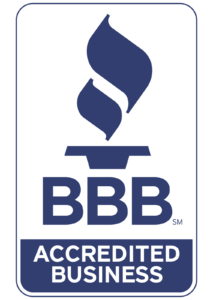HOME INSPECTIONS 4 POINT & MITIGATION
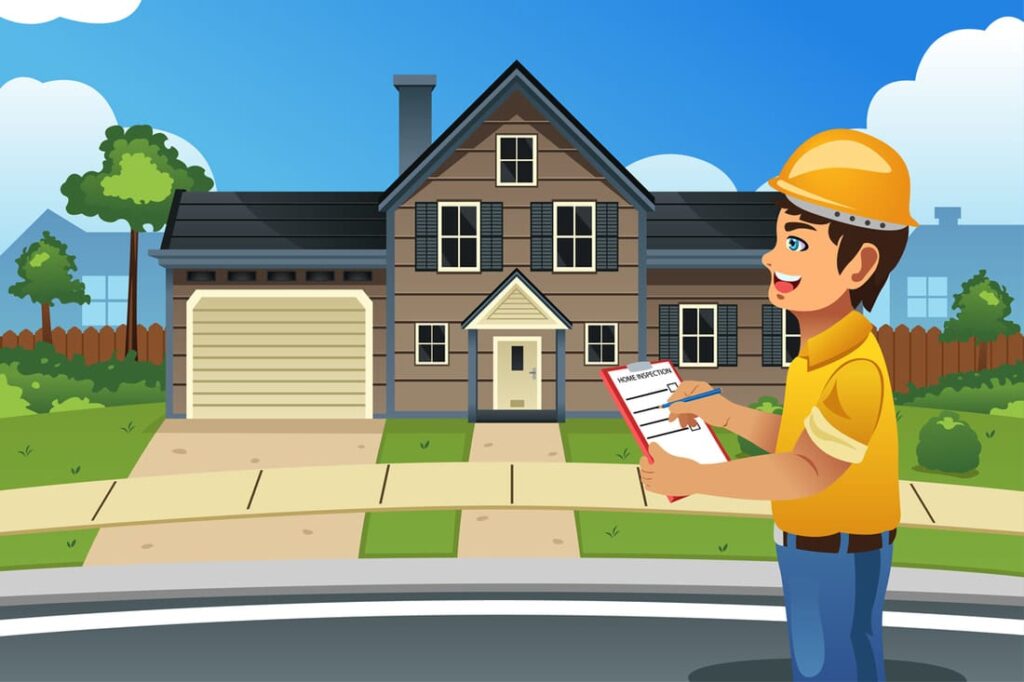
A 4 point mitigation inspection is a type of home inspection that focuses on identifying features that can help mitigate or reduce the risk of damage to a property in the event of a hurricane or other severe weather event. This type of inspection is often required by insurance companies in hurricane-prone areas, and can help homeowners qualify for discounts on their insurance premiums. Here is a breakdown of what you can expect in each of the four areas:
Roof

The roof is one of the most important components of a home when it comes to mitigating hurricane damage. During a 4 point mitigation inspection, the inspector will evaluate the condition of the roof and look for features that can help reduce the risk of damage. This may include:
-
The type of roof covering: Certain types of roofing materials, such as metal or tile, are more resistant to wind damage than others.
-
The age of the roof: A newer roof is generally more resistant to damage than an older roof.
-
The roof geometry: A hip roof, for example, is more resistant to wind damage than a gable roof.
-
The presence of roof-to-wall connections: Strong roof-to-wall connections can help keep the roof attached to the house during a hurricane, reducing the risk of roof damage.
Windows and doors
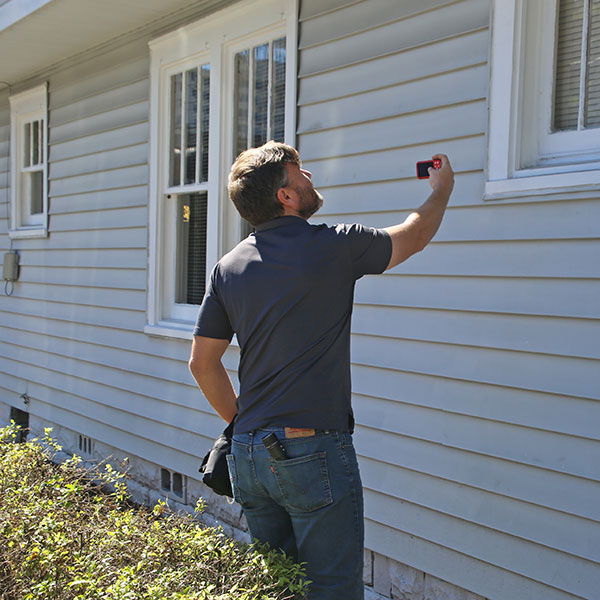
Windows and doors are vulnerable areas during a hurricane, as high winds can cause them to fail or even blow out of the frame. During a 4 point mitigation inspection, the inspector will evaluate the windows and doors and look for features that can help reduce the risk of damage. This may include:
-
Impact-resistant windows and doors: These types of windows and doors are designed to withstand high winds and flying debris.
-
Hurricane shutters: These can be either permanent or removable and can help protect windows and doors from wind and debris.
-
Reinforced garage doors: Garage doors are particularly vulnerable during a hurricane and should be reinforced to reduce the risk of failure.
-
The presence of door and window shutters: Shutters can help protect doors and windows from damage and can be either permanent or removable.
Exterior walls
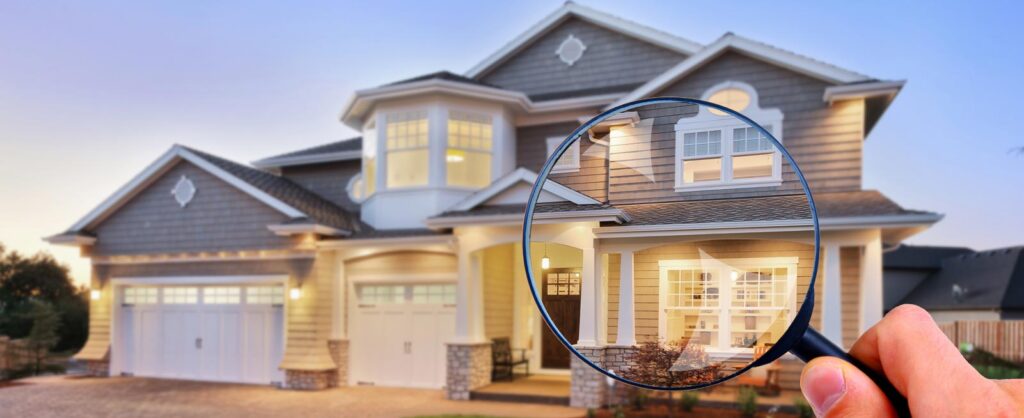
During a hurricane, wind, and flying debris can cause significant damage to the exterior walls of a home. During a 4 point mitigation inspection, the inspector will evaluate the exterior walls and look for features that can help reduce the risk of damage. This may include:
-
The type of exterior wall construction: Concrete block or reinforced masonry walls are more resistant to wind damage than other types of construction.
-
The presence of wall-to-foundation connections: Strong wall-to-foundation connections can help keep the walls attached to the foundation during a hurricane.
-
The presence of wall-to-roof connections: Strong wall-to-roof connections can help keep the roof attached to the walls during a hurricane.
-
The presence of hurricane straps or clips: These devices can help reinforce the wall-to-roof connections and reduce the risk of failure.
HVAC and other systems
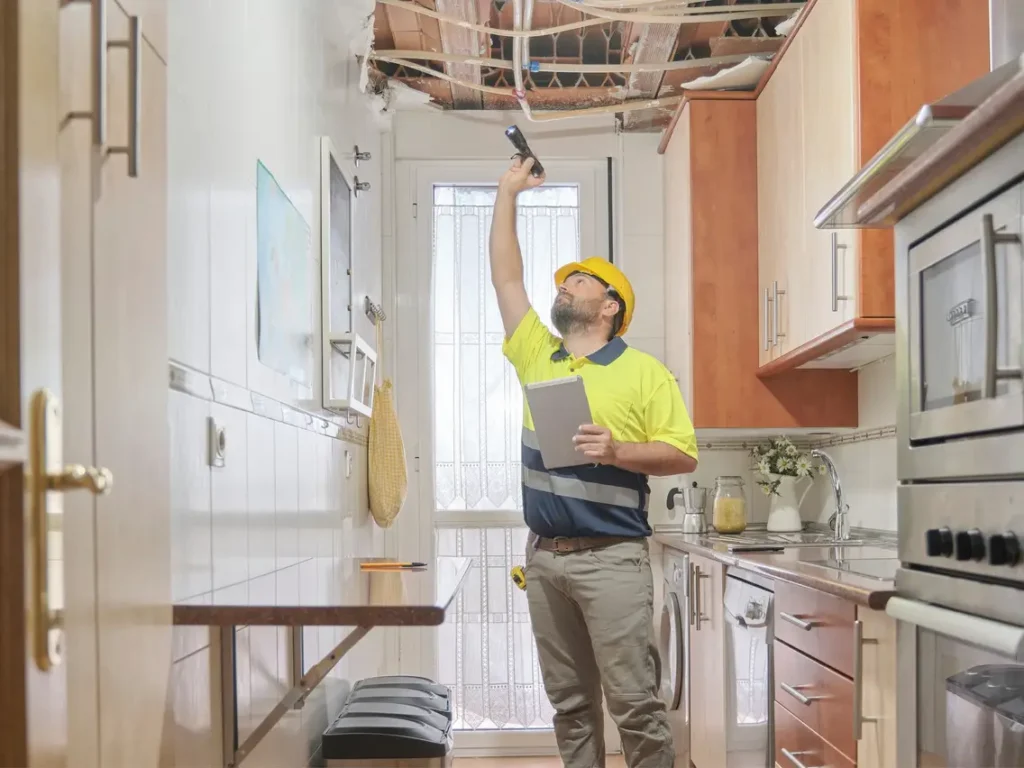
During a hurricane, damage to the HVAC system or other systems in a home can result in significant damage and potential safety hazards. During a 4 point mitigation inspection, the inspector will evaluate the HVAC system and other systems and look for features that can help reduce the risk of damage. This may include:
-
The location of the HVAC system: The system should be located in an area of the home that is less vulnerable to damage from wind and debris.
-
The presence of surge protection: Surge protectors can help protect the HVAC system and other electronic equipment from damage due to power surges.
-
The presence of shut-off valves: Shut-off valves for the gas and water supply can help prevent damage and potential safety hazards in the event of a hurricane.
Home Inspections
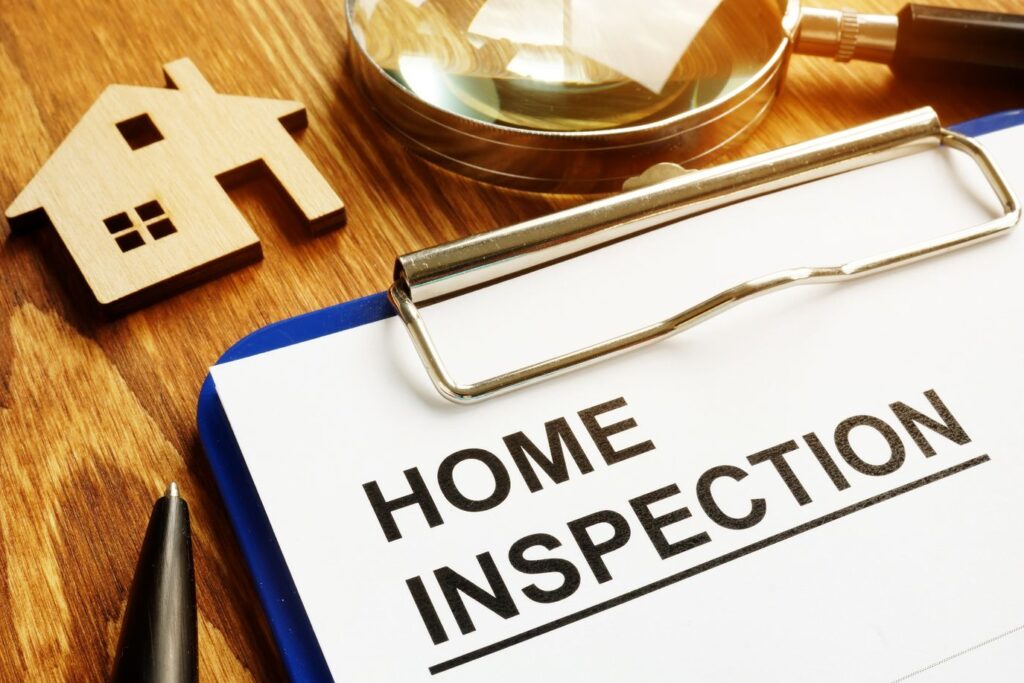
A residential house 4 point inspection is a type of inspection that evaluates the four major components of a home, including the roof, plumbing, electrical, and HVAC systems. This type of inspection is commonly required by insurance companies before issuing a policy on an older home or a home with prior claims. Here are some benefits of getting a residential house 4 point inspection.
-
Helps identify potential hazards: A 4 point inspection is an excellent way to identify potential hazards, such as faulty wiring, leaks, or outdated plumbing systems. Identifying these issues early can prevent accidents or damages to your home, and can also save you money in repairs down the line.
-
Saves money on insurance premiums: If you have an older home or one that has experienced previous claims, you may find it difficult to obtain affordable homeowners’ insurance. A 4 point inspection can help you identify issues that could be raising your premiums, and by making the necessary repairs, you may be able to qualify for a lower insurance premium.
-
Increases the value of your home: Having a 4 point inspection completed on your home can increase its value by providing prospective buyers with peace of mind. If the home has recently undergone an inspection and all major systems are in good working order, buyers may be more likely to make an offer.
-
Provides a comprehensive evaluation: A 4 point inspection provides a comprehensive evaluation of your home’s major systems. This can be especially beneficial if you are considering purchasing a new home. By having a 4 point inspection performed, you can be confident that you are making an informed decision before signing on the dotted line.
A home inspection is an examination of the condition of a home, condo, or mobile home that is up for sale. The object of this type of inspection is to empower the buyer with the information they need to make an informed decision on their future investment. The focus of a home inspectors examination will not be on cosmetic defects, but more so on the major defects of the home, condo, or mobile home. Defects that will likely cost the buyer a great deal of money in repair costs down the line after the property has already been purchased.
A home inspection includes
≫ Roof
≫ Property Interiors (Including Doors & Windows)
≫ Property Exteriors
≫ Foundation, Crawlspaces & Structure
≫ Attic, Insulation & Ventilation
≫ Plumbing Systems
≫ Electrical Systems
≫ Heating Systems
≫ Central Cooling Systems
4-POINT INSPECTIONS
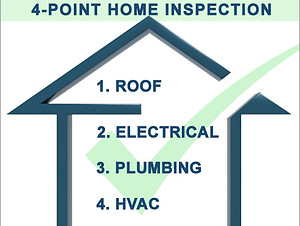
Insurance companies require a 4-point inspection report before writing a policy for homes that were built more than 25 years ago. A 4-point inspection focuses on four main areas of the property. Those 4 main areas will be HVAC (Heating, Ventilation and Air Conditioning), Electrical wiring and panels, Plumbing connections and fixtures, and the Roof. The inspection report will describe the
condition and age of these elements.
A four point inspection includes:
≫ Roof
≫ HVAC
≫ Plumbing System
≫ Electrical System
WIND MITIGATION INSPECTIONS

WIND MITIGATION INSPECTION
Adding precautionary protective attributes to your home that will help increase resistance to high winds caused by major storms and hurricanes may qualify you for credits on your insurance policy. A wind mitigation inspection helps determine whether or not your home has these attributes.
A wind mitigation will determine:
≫ What year the home and roof were built in
≫ Type of roof, size of nails, pattern the nails are in, etc.
≫ Roof to wall attachments
≫ Types of exterior openings the home has
≫ Whether or not attic has resistance features to the elements of a hurricane
ROOF CERTIFICATIONS
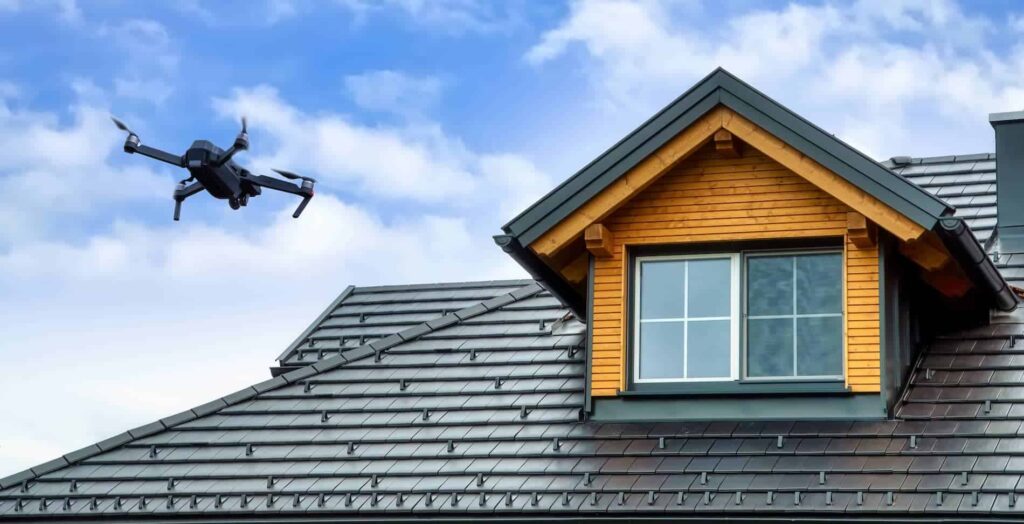
Roof Certs.
Roof inspections are necessary to assess not only the life expectancy of the roof, but the current condition roof as well. Our inspectors are trained to uncover any possible deficiencies. Pictures are taken from several angles and vantage points.
In the event that any roof repairs are found to be needed, these repairs must be satisfied before a certification can be issued by your inspector. If no repairs are needed, and certification can be provided to you same day, on site!
A roof certification covers
≫ Examination of the over all appearance of the interior/exterior of the roof to determine if there is any deterioration or physical damage.
≫ Examining for leaks and cracks
≫ What the condition is of fascia boards, gutters, drains, chimneys, vents, and skylights (if accessible)
≫ Assess the current condition of the shingles
≫ Determine if there are missing/damaged flashing points
CERTIFICATE OF BALCONY INSPECTION

Cert. of Balcony
The state of Florida requires a balcony inspection for all public lodging establishments. This includes hotels, and condos/apartments that are three or more stories high.
Our inspectors will visually inspect the balcony and take note of each deficiency, if any. They will provide you with a general description of the types of deficiencies found. If any issues are found, depending on the type, your inspector may recommend you seek further evaluation from a specialist. This specialist will guide you in the right direction as to what steps would need to be taken moving forward with the necessary repairs. Once repairs have been made, your inspector can reevaluate the property.
A certificate of balcony inspection includes:
≫ Balconies
≫ Railings & Fastners
≫ Decking
≫ Wall Attachments
≫ Ledger Boards
(For all lodging establishments 3 stories or higher)
Commercial Property Inspections
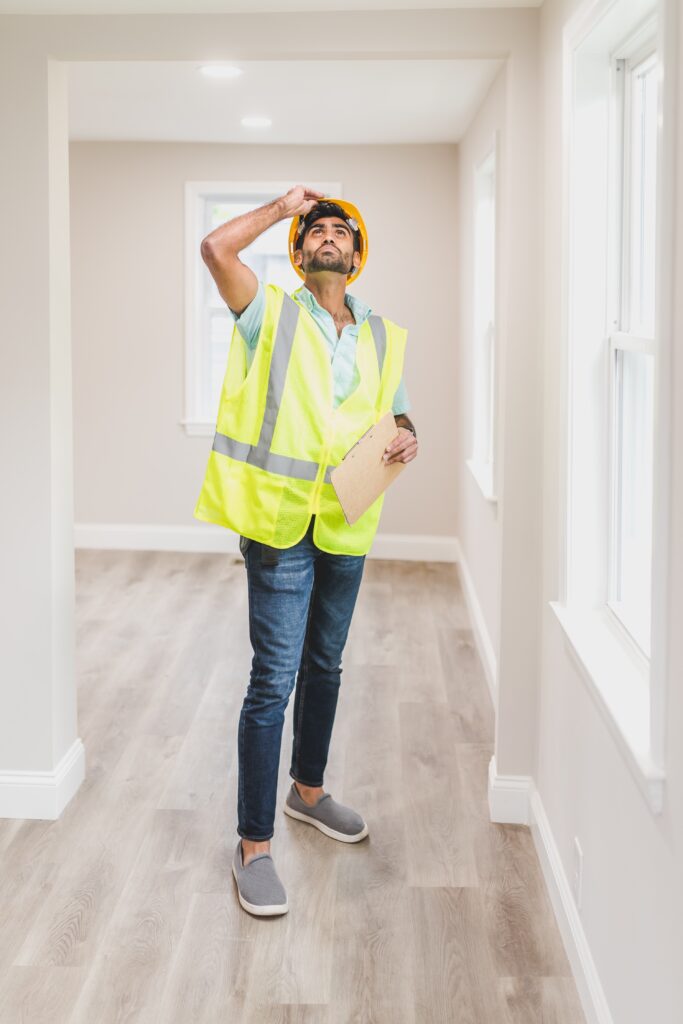
Commercial Inspections
Commercial investors hire an inspector whose role is to provide inspection reports on building systems; such as HVAC, electrical, roofing, and structure. The goal of a commercial inspection is to provide the client with all of the details they need to move forward into negotiations with as much power in their possession as possible. For a commercial investor, during negotiations, knowledge and documentation are power. Assembling this information is where commercial inspectors play a key role.
Commercial property inspections cover:
≫ HVAC
≫ Electrical
≫ Roofing
≫ Structure
Call now for a free estimate!
(786) 830-1358


